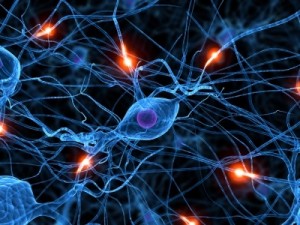How the Brain of a Blind Person Rewires Itself
 Do blind people really have a sharpened sense of hearing? What is the explanation? This article reports the work of German researchers who looked at blind people’s brains to try to answer these questions. They found out that indeed, blind people can understand speech even if sped up beyond the maximum rate that sighted people can understand. This seemed possible because the brain areas devoted to vision in people with eye sight turned out to be responding to speech in blind people.
Do blind people really have a sharpened sense of hearing? What is the explanation? This article reports the work of German researchers who looked at blind people’s brains to try to answer these questions. They found out that indeed, blind people can understand speech even if sped up beyond the maximum rate that sighted people can understand. This seemed possible because the brain areas devoted to vision in people with eye sight turned out to be responding to speech in blind people.
10 syllables per second [is] the absolute limit of comprehension for sighted people. Blind people, however, can comprehend speech sped up to 25 syllables per second.
brain scanner revealed that in blind people the part of the cerebral cortex that normally responds to vision was responding to speech.…somehow an unsighted person’s brain rewires itself to connect auditory regions of the brain to the visual cortex.
A perfect example of neuroplasticity! Do you think this happens 1) only in people who are born blind, or 2) only in people who lose sight later in life, or 3) in both cases?
The answer is 2). Indeed, to be rewired connections need to preexist. This is not the case in people who are born blind since their visual cortex has never received any visual stimulation. It is only in people who lose sight later in life, that the visual connections can be rerouted to process auditory information.
How does it work?
The fact is that most of our senses have some interacting circuitry between them, which is called cross modality. […] These connections between visual and auditory regions of the brain become strengthened after losing sight.
Also, some regions of cerebral cortex that border visual and auditory cortices […] expand territory in blind people to make use of the idle circuitry in visual cortex.
Related post: Brain Plasticity: How learning changes your brain


